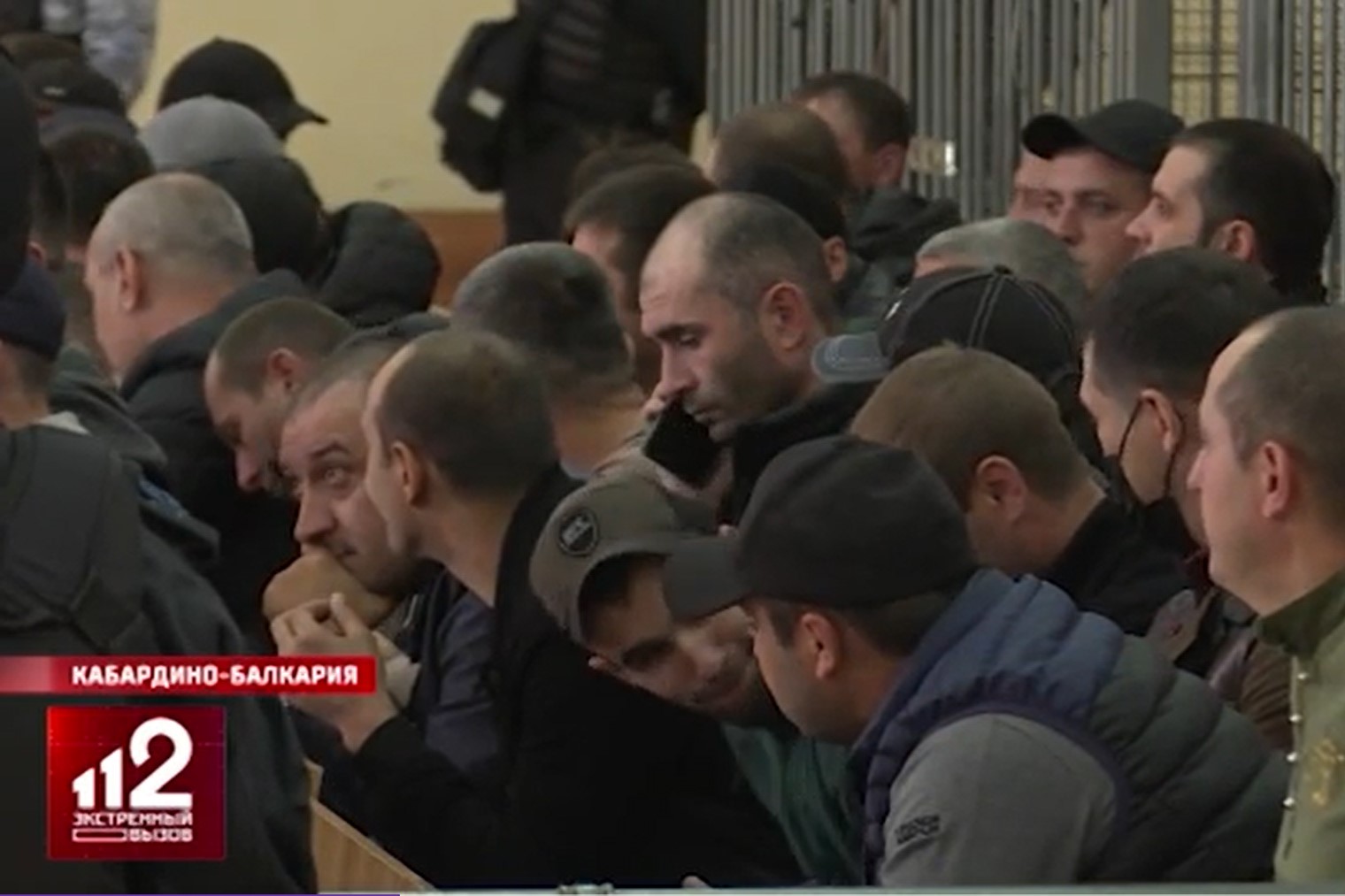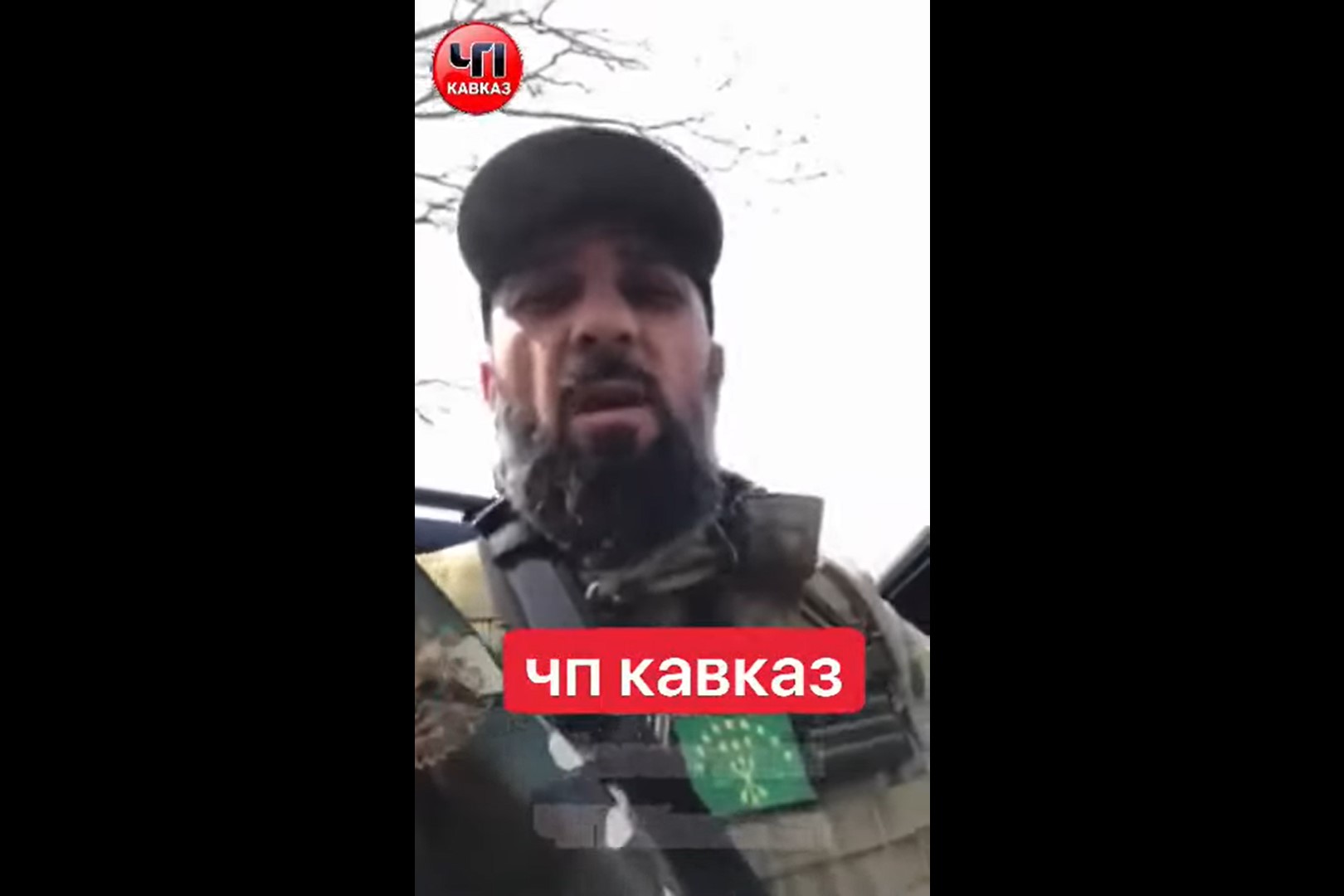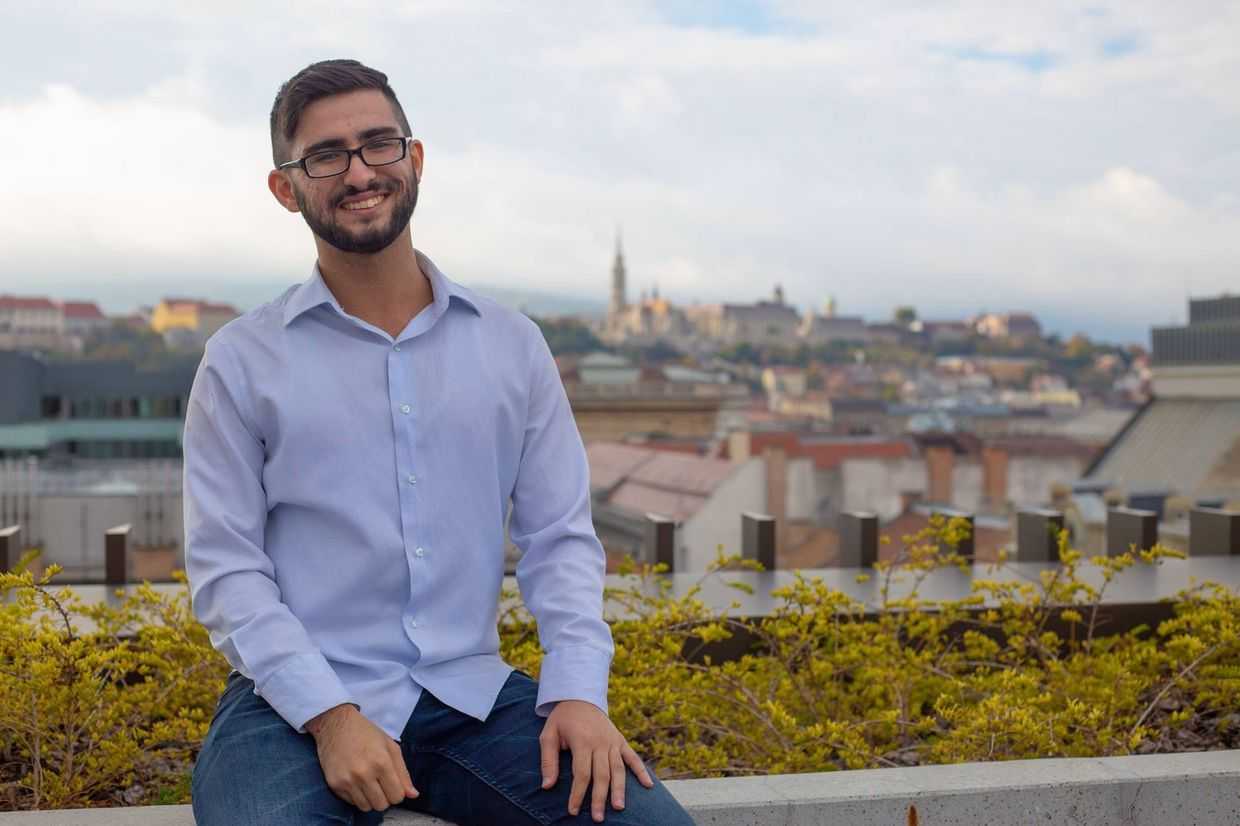
In the Russian Republic of Kabardino-Balkaria, a region with historic ties to Ukraine, the invasion of Ukraine has been met with uneasiness from some, mass desertion by soldiers, legal challenges by those dismissed from the armed forces, and fear in the families of those sent to the front.
When Russia’s invasion of Ukraine began in the early hours of 24 February, armed forces had been gathering on the borders for almost a year, establishing bases, moving military units, and conducting training exercises. Troops had been dispatched from around the country, with little information as to what the purpose of their deployment might be.
At the beginning of March, 500 soldiers from Kabardino-Balkaria left their posts and returned to their hometowns, crossing the Russian-Ukrainian border near Belgorod.
On their return, they were dismissed from their posts, despite having been told that this would not happen and that the worst they would face was disciplinary punishment. They came back to family and friends who had been kept in the dark, barred from sharing independent media accounts of the war or knowing the names of the dead.
In a region with distinct national identities that suffered during the conquest of the Caucasus by the Russian Empire, and later under the oppression of the Soviet Union, tensions with the Kremlin bubble under the surface even at the best of times. Add to this close historic ties to Ukraine, with a large Ukrainian population in the region in the century and extensive cultural exchange throughout the same period, and the war was never going to be an easy sell.
As the Russian government continues its campaign of misinformation and the number of injured and dead rises, it is unclear where tensions between Kabardino-Balkaria’s people and the Russian state will leave its people.
Told ‘the locals would meet us with flowers’
Ali (not his real name) was not always a private driver. Just a few months ago, he was a member of the National Guard, the internal military force that reports directly to President Vladimir Putin.
But on deployment on a ‘special military operation’ in Ukraine, he found that instead of an orderly mission to manage cities that had welcomed Russian forces, ‘there was confusion all around’.
Ali describes the fierce shelling his regiment faced, and a severe ‘lack of elementary necessities — regular food, ammunition, clear orders’.
Faced with a choice between losing his life on the frontline, and losing his job on returning, Ali chose the latter, one of 500 soldiers from Kabardino-Balkaria to do so.
Ali’s account mirrors those of others. In early May, Kavkaz.Realii interviewed soldiers from North Ossetia who explained that prior to deployment, there was no indication that they were being sent to ‘a full-scale war’, instead being told that, in Kharkiv, ‘the locals would meet us with flowers, as they had in Crimea.’
‘We were [sent] without appropriate uniforms and without the necessary number of weapons.’
‘We were told that we would escort cargo, work at checkpoints and maintain order, a curfew’, said one of the soldiers who had returned from Ukraine. ‘We were not told that we would be under artillery fire almost all the time. The mood, of course, has changed, and most are already returning.’
Independent media outlets reported that soldiers from Kabardino-Balkaria came under shelling on the morning of 24 February in the Kharkiv region.
‘We were heading [toward Kharkiv] through fields, through villages, and here is the first village, the first residential buildings, shops, people were standing on the roads… and everyone came under fire’, said a soldier, speaking to Mediazona.
Having expected to arrive after cities had been captured, the National Guard instead found themselves thrust into direct conflict from the first days of the war.
Four days after the war began, soldiers crossed the border near Belgorod and travelled to a temporary deployment point in Zorino, in the Kursk region. They gave in their weapons, hired buses to take them home, and returned to Kabardino-Balkaria at the beginning of March.
A legal challenge
The nature of this return is a point of contention.
Technically, none of the soldiers can be classed as deserters and cannot face corresponding criminal prosecution. This is because Russia has not officially acknowledged that it is at war with Ukraine, instead maintaining that they are conducting a ‘special operation’.

On top of this, soldiers claim that they were given the choice of whether to continue fighting or to leave.
‘The reason for my departure was being given the choice by my regiment commander. If the commander had given the order to continue to participate in the special operation, I would have fulfilled that order’, said a dismissed member of the National Guard, speaking to Kavkazskii Uzel.
Soldiers describe returning their weapons following proper protocol, and being given travel allowances and assistance with finding transport.
According to Mediazona, before crossing the border, Lieutenant Colonel Zaur Ikaev told soldiers that ‘all those who cross the border… will be considered war criminals’.
Having crossed the border, a National Guard general announced that ‘a decision has been made… to tell you once again: no one considers you refuseniks, no one considers you deserters’.
But at the beginning of March, approximately 500 soldiers were dismissed, all having returned from near Kharkiv.
Two months after their dismissal, 115 former employees of the National Guard submitted an appeal to the Nalchik military court, demanding that their dismissal from military service be recognised as unlawful and that their roles be reinstated. On May 25, that appeal was denied.
Kabardino-Balkaria kept in the dark
Since the beginning of the invasion of Ukraine, the Russian government has tightly controlled the information available about the ‘special operation’, making sharing information about the war that is considered to discredit the Russian army or to be incorrect a punishable offence.
Reports of the death of citizens of Kabardino-Balkaria have frequently come late — sometimes, after two or more weeks.
Since 2015, information about those who have died during ‘special operations’ has been classified as a state secret. Information about the dead became even more inaccessible after 20 April 2022, when the Russian Ministry of Defence decided to classify data on relatives of military servicepeople who had died in Ukraine.
Even publications about posthumous awards given to soldiers who died in Ukraine do not mention the names of the recipients, so preventing journalists from contacting their relatives.
Despite attempts to limit the spread of information and clamp down on liberal online resources, from the first days of the invasion, social media users in Kabardino-Balkaria were aware of the heavy losses sustained by the National Guard.
However, they rarely shared information from unofficial sources on social media, fearing punishment.
Since the beginning of the special operation in Ukraine, at least 25 deaths of Kabardino-Balkaria natives have been officially confirmed.
‘Not our special operation’
Social media has been an active front in the information wars surrounding the invasion of Ukraine. One video posted on Telegram proved contentious, due to its featuring the Circassian flag.

‘I can’t understand what our national flag is doing there, because it’s not our small nation that’s carrying out the special operation,’ said a resident of Nalchik, the capital of Kabardino-Balkaria.
Speaking to OC Media, the former actress recalled that during the Soviet Union, Nalchik and Vinnytsia (a city in west-central Ukraine) were sister cities. Actors, writers, and artists often exchanged creative visits, and there remains a Vinnitskaya Street in Nalchik to this day.
There is still a house museum dedicated to the Ukrainian writer Marko Vovchok in the apartment where he once lived, and the city park was previously populated with statues made by the Ukrainian sculptor Leonid Molodozhanin (Leo Mol).
According to the Nalchik resident, Ukrainians have always lived in Kabardino-Balkaria. In the late 18th century, Kuban Cossacks from the Zaporizhia region made up a large and well-integrated Ukrainian population in the region. Settlers from the Poltava province appeared in the second half of the 19th century, followed by a wave of Ukrainian migrants in the 1920s–1940s, fleeing the Holodomor famine and later advancing German troops.
Following the Russian invasion of Ukraine, Ukrainian refugees began to flow into Kabardino-Balkaria. At least 400 people from Donetsk and Luhansk have sought safety in the region, with the local government providing accommodation in sanatoriums and promising medical assistance and education.
The actress describes the vibrant history of connection and exchange, but concludes with regret that, following the war, ‘all this has been trampled down’.








